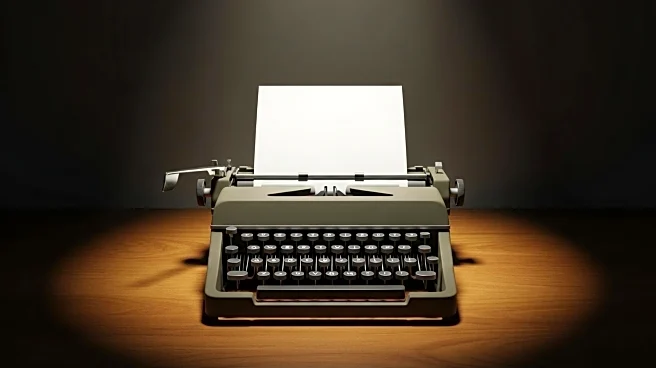What is the story about?
What's Happening?
Mario Guevara, a journalist based in Georgia, has been deported to El Salvador following his arrest while covering a protest in Atlanta. Despite wearing a press vest and streaming the event, Guevara was detained by Immigration and Customs Enforcement (ICE) and subsequently deported. His deportation has sparked criticism from press freedom organizations, including the Committee to Protect Journalists and Amnesty International USA, who view this as a sign of deteriorating press freedom under President Trump's administration. Guevara's case highlights the challenges journalists face in maintaining press freedom amid increasing governmental scrutiny.
Why It's Important?
The deportation of Mario Guevara underscores the growing concerns about press freedom in the United States, particularly under President Trump's administration. This incident may have broader implications for journalists who report on government activities, potentially leading to self-censorship due to fear of retaliation. The case also raises questions about the treatment of non-citizen journalists and the enforcement of immigration laws, which could impact the diversity and scope of media coverage in the U.S. The situation reflects a tension between national security measures and the protection of free speech and press rights.
What's Next?
Guevara has expressed his intention to continue reporting from El Salvador, focusing on stories about migrants and his experiences in detention. His deportation may prompt further advocacy from press freedom groups and legal challenges regarding the treatment of journalists and the enforcement of immigration laws. The Trump administration's stance on press freedom and immigration enforcement is likely to remain a contentious issue, with potential implications for future policy decisions and international perceptions of U.S. press freedom.
Beyond the Headlines
Guevara's deportation highlights ethical and legal dimensions concerning the balance between national security and press freedom. It raises questions about the role of journalism in holding governments accountable and the potential chilling effect on media coverage of controversial topics. The case may also influence cultural perceptions of journalism and its role in democracy, particularly in the context of immigration and human rights.















